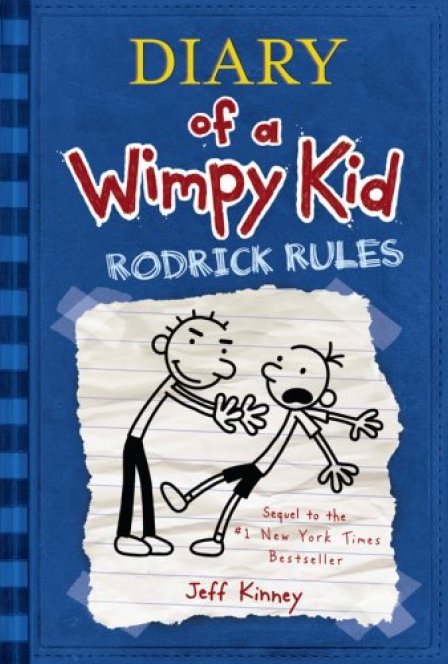From what an adult can tell, Diary of a Wimpy Kid: Rodrick Rules is indeed about a kid whose main (and, sadly, only) character trait is wimpiness, and who is therefore having a tough time in seventh grade. But from the perspective of its target audience, most of them too young to understand the mechanics and the business behind this kind of kid-targeting franchise, this movie may actually seem like it’s presenting a plausible world and thereby coax kids into concluding that everybody will fit into sitcom stereotypes, know the latest celebrity gossip, and will either treat one another as if their emotions were non-existent or seamlessly vanish by the time the next scene rolls around. I don’t want to sound like your average diversity counselor, but it bears thinking about the possibility that this kind of dumbed-down kidsploitation might be interpreted as authentic by its exploitees, and that the most likely effect of such an interpretation is a whole lot more dumbing-down.
The wimpy kid is named Greg (Zachary Gordon). He has a plump best friend (Robert Capron), an overbearing mother (Rachael Harris), an aloof father (Steve Zahn), a beautiful crush (Peyton List), and a mean-spirited “hipster” older brother (Devon Bostick as the titular Rodrick). Nothing happens to Greg or to anyone else in this movie outside of what might be expected from their most succinct character descriptions, which probably seemed, to the filmmakers, like precisely the way things should have been, given that these clichés are so determinedly aimed at a young audience. But it seems like either crass cynicism or resolute laziness that kids are assumed to be unimaginative enough to consider the problems of Greg and his gang relatable.
From a structural standpoint, Diary of a Wimpy Kid is something like three or four different Nickelodeon sitcoms chopped up and edited back together at random. At any given point, Greg, his chunky friend, and/or his brother Rodrick seem to be hopelessly embroiled in a half dozen forms of canned hijinks, the likes of which include convincing their classmates to act like the school’s only Indian kid doesn’t exist (for vaguely racist reasons), to cheating on class papers (with the tacit approval of their father), to hosting a forbidden party prominently featuring endless brand-name bottles of soda. The sibling rivalry subplot, from which the movie takes the part of its title that comes after the colon, is more of an afterthought: Rodrick “rules” Greg at times like a boringly vindictive dick and at other times like a soda-drinking bad boy father figure, but there isn’t enough arc to the brothers’ relationship to even warrant its inclusion in the title.
It would be great to see a movie imagine the terrors of middle school (or brotherhood) from a kid’s perspective, and that’s possibly what director David Bowers intended. But this movie is a cynical assumption of how kids see the world. As such, it feels much more like a crass Nickelodeon commercial, trying to sell toys or soda or clothes, than a comedy of middle school years. Kids should steer clear of this kind of pandering, ugly commercialism (in the truest sense of the word) and stick to the world of great kids movies that, thankfully, exist.

